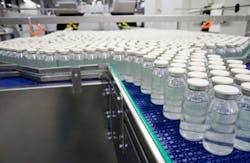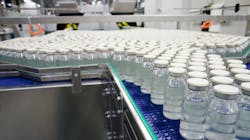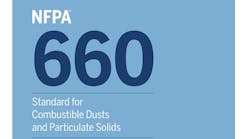King Pharmaceuticals to pay $2.2 million over Clean Air Act violations
Tennessee-based King Pharmaceuticals, a subsidiary of Pfizer, Inc., will pay a $2.2. million penalty to resolve issues relating to allegations of Clean Air Act violations, the U.S. Environmental Protection Agency (EPA) announced.
Half of the amount will be paid to the United States, while the remaining $1.1 million will be paid to the Tennessee Department of Environment and Conservation (TDEC), according to a press release. Out of the amount paid to the Tennessee state department, $650,000 will be allocated to a state initiative designed to help homeowners. Under the program, local low-income homeowners receive financial support to improve the energy efficiency of their homes, focusing on weatherization and insulation, which will in turn reduce energy consumption and carbon emissions.
The alleged breaches of the Clean Air Act regulation were discovered in May 2006 during an inspection and subsequent investigation by the EPA and TDEC. The complaint was brought jointly by the United States and the state of Tennessee. The Department of Justice lodged the consent decree on behalf of the EPA in the U.S. District Court for the Eastern District of Tennessee.
As part of its settlement with the EPA, King Pharmaceuticals will also have to take measures to bring its operations into compliance with the CAA National Emission Standards for Pharmaceuticals Production (PharmaMACT regulations), as well as apply for a Title V permit. The PharmaMACT regulations require pharmaceutical companies to apply industry-specific minimum standards to ensure control over potential release of hazardous chemicals that could pollute the air and have an adverse effect on the environment and on human health.
RELATED: Bill passed to fight counterfeit drugs
Robert G. Dreher, acting assistant attorney general for the Justice Department's Environment and Natural Resources Division, commented that the settlement with King Pharmaceuticals will be beneficial for the protection of public health by requiring the company to impose extra hazardous air pollutants control at its facility in Bristol. The substantial civil penalty will serve as a warning to all pharmaceutical companies that fail to comply with PharmaMACT regulations, he added.
Beverly H. Banister, acting deputy regional administrator of the EPA's Southeastern office, stated that one of the key priorities for the agency was to ensure that the Clean Air Act was enforced rigidly and that public health was protected. She believed that the settlement would result in better management practices that would be beneficial to the community in Bristol and to the environment.
According to TDEC Commissioner Bob Martineau, the settlement would not only improve operations at the King Pharmaceuticals facility but would also help the state of Tennessee address critical issues such as emission reduction and energy efficiency.
The company has been operating in Bristol since 1993, when the facility was first launched. King Pharmaceuticals was acquired by Pfizer, Inc. in 2011 and in May 2013 UPM Pharmaceuticals said that it planned to take over King's Tennessee facility. The EPA announced that the sale of the plant would not affect the injunctive relief required by the settlement.



